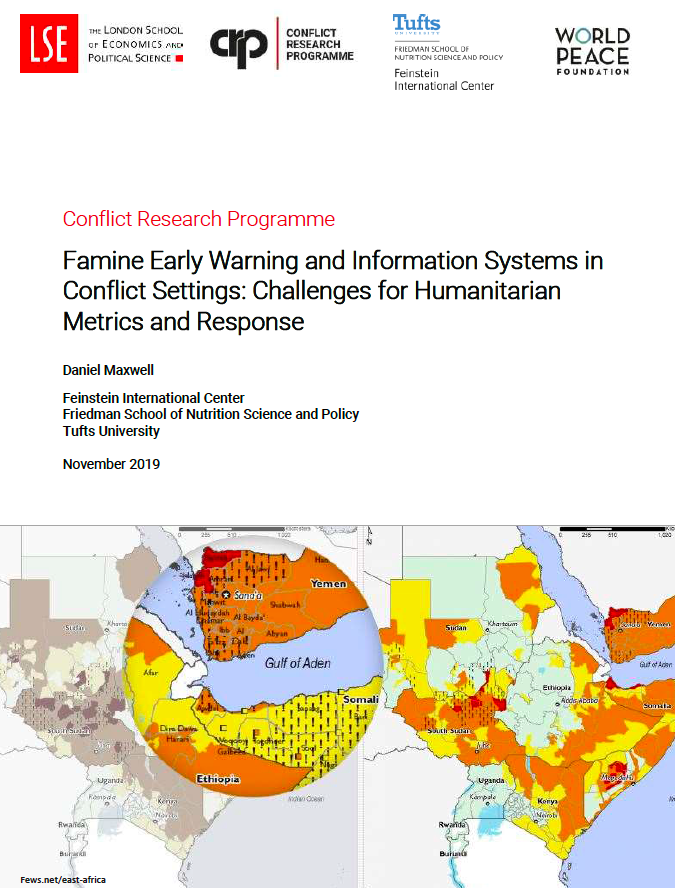Attention to the growing number of people caught in crises characterized by extreme and often protracted levels of food insecurity, malnutrition, and mortality is increasing. The information systems that track these conditions and inform humanitarian decision-making have expanded substantially in the past two decades and in many cases have reached a degree of unprecedented sophistication. These famine early warning systems have become increasingly sophisticated in the past decade, but they still tend to be based on several assumptions that are important to understand. This paper briefly describes existing famine early warning systems and outlines some of the assumptions on which they are based— both in theory and in practice. Then it gives four brief case studies of recent famine or “famine-like” events and pieces together the formal analysis process with an attempt to reconstruct events on the ground from a conflict analysis perspective—highlighting the extent to which the formal famine analysis did or did not deal with conflict analyses and the political kryptonite around the discussion of “intent.” It closes with a summary of gaps in the current system and an assessment of the risks of trying to address those gaps through famine EWS or alternative means.
Famine Early Warning and Information Systems in Conflict Settings: Challenges for Humanitarian Metrics and Response

November 2019
ASSOCIATED PROJECT
SUBJECTS
PUBLICATION TYPE
LOCATION
RELATED PUBLICATIONS
This desk study explores how state-owned policies and programs in pastoral areas of the Sudano-Sahel and the Greater Horn of Africa meet pastoralists’ needs and priorities.
•
October 2024
This report outlines an anticipatory insurance product designed to support farmers in the drought-prone regions of Malawi and Zambia.
•
August 2024
The time pressure involved in designing and implementing anticipatory action can discourage the localization of decision-making. Learn more from a cartoon-infused summary of insights.
•
July 2024
Early Warning Systems can reduce deaths and damages caused by extreme weather events, if investors address gaps in communication and planning. Learn more from a cartoon-infused summary of insights.
•
July 2024
This synthesis report reflects upon Phase 1 findings on humanitarian action in pastoral drylands of the Greater Horn and Sudano-Sahel.
•
June 2024
This desk study examines common perceptions of pastoralism among humanitarians and barriers to international humanitarian systems meeting pastoralists’ needs.
•
June 2024






